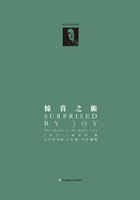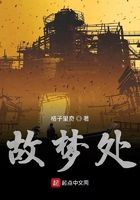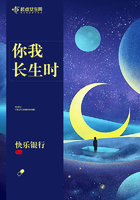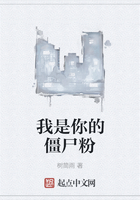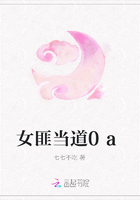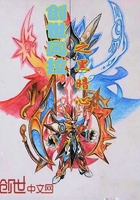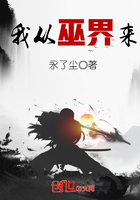As soon as the five devil oxen were dead, a nine-head devil bear leaped from the marshy grassland. The horses shied and stamped and the warriors could not control them. When the devil bear was about to rush into the camp of the Ling troops, King Gesar blocked its way and fired nine divine arrows at it. The bear fell down, writhing in pain and died.
The Ling troops then took the four passes known as the Iron Mountain Pass, the River Pass, the Rock Pass and the Snow Mountain Pass. They marched over 18 sky-scraping snow-capped mountains and arrived in Parigyasui, where six brothers ruled. These six brothers submitted to the King of Chayo and guarded this pass for him.
The next day, the Ling troops led by Trigyi Samzhub, a general of Wolang kingdom, made a surprise attack on the Parigyasui Camp where their ringleader, Sengcham Larga, lived. The Ling troops fought into Sengcham Larga’s camp and robbed all their belongings without killing anyone. Coincidently, Sengcham Larga had taken a patrol over his other land in the morning and he had not come back.
Sengcham Larga hit the ceiling when he learned that his lair had been ransacked. He galloped on his own to the Ling camp directly, and entered the Ling troops’ camp at lightning speed.
The Ling troops tried to stop him but failed. Then Chatsa Shigar jumped forward and hacked at him with his broadsword. Sengcham Larga retaliated and cut and thrust several times at Chatsa. However, Sengcham Larga felt like he was cutting a rainbow when his weapon hit Chatsa. Sengcham Larga told himself: “This man must be the incarnation of the rainbow. I had better not fight with him, and should kill the other Ling generals first.”
Sengcham Larga strove to withdraw from fighting with Chatsa but Chatsa kept chasing after him.
Sengcham Larga galloped towards the tent of Prince Zhalha. Prince Zhalha came out of his tent swiftly and fired three shots at Sengcham Larga. Strangely, the arrows moved smoothly over Sengcham Larga. Just then, Chatsa and other generals caught up with Sengcham Larga, and surrounded him tightly. However, they still failed to defeat him. Sengcham Larga opened a small bag as soon as these generals became a little careless. The bag gave off a wisp of miasma and the six Ling generals fell off their horses. Only Chatsa and his son fought with Sengcham now. Chatsa turned on Sengcham Larga’s left abruptly and cut off his arm. The blood spurted out. Sengcham Larga’s face grew pale and he fell off his horse when Chatsa launched another fatal hit.
Ling troops cheered loudly.
After that, Chatsa defeated the other four younger brothers of Sengcham Larga, including Sipa Larga and Lotri Larga, and seized the castles they guarded. Only Namka Chita Gorbo fled away leading his remnants of a routed army. Namka Chita Gorbo escaped back to the capital city of Chayo State.
Chayo boasted an excellent army and sufficient supplies. The state was divided into upper, central and lower parts, with its capital located in the central part and named Myicho Tokar Gosui which means “permanent poisonous city”. The city was contaminated by noxious gas made from 180 kinds of poisonous weeds. The poisonous gas could kill everyone easily except the local residents.
King Tolha Zhadui lived in the central palace in the Hall of Sunshine.
One day, when Tolha Zhadui was discussing government affairs with some officials, an imperial bodyguard brought him a message:
“Your Majesty, Namka Chita Gorbo requests to meet you.”
Tolha Zhadui went into a trance for a second and then said: “Summon him quickly.”
Namka Chita Gorbo entered the hall anxiously and knelt down in front of Tolha Zhadui. He reported in detail that Ling troops had occupied their castles and killed his brothers and emptied their treasury.
Tolha Zhadui flew into a rage. He said:
“We must take revenge! ”
By the time Tolha Zhadui and his officials and generals had deployed their troops, the Ling army had left Parigyasui. They were marching towards the capital city of Chayo State. The Lion King had ordered Dainma, Sengta, Razha and Ngazha to take the Chizoin Momor Teya City.
The Chizoin Momor Teya City had three concentric magnetic walls, which made it possible for the people inside the wall to hear the people outside by the sound of their ironware. Pentri Tritsang, Prince of the Wolang State, ordered the Ling troops to spread antimagnetic substance on their armour and weapons. Consequently, the Chayo troops were unaware that the Ling troops had marched up to the city walls quietly.
The Ling troops attacked the four city gates separately. Dainma broke through the Eastern Gate with his divine arrow, bestowed on him by Gesar, and was the first to fight into the city. Then the other three generals also broke into the city one after another and quickly occupied the city.
The king of Chayo State immediately sent General Toqoi Meri Losha and General Toqoi Mepa to recapture the city. However, the Ling troops had redoubled the fortifications of the city in the meantime, so no matter how much the Chayo troops attacked, they still could not gain an entry. Therefore, General Toqoi Meri Losha had to withdraw his troops because of heavy losses and they left without Dainma giving chase.
Dainma opened the city gates to welcome Gesar and Chatsa Shigar in. Then the Ling troops made this their permanent base. When Toqoi Meri Losha was defeated and came back to his city, King Tolha Zhadui asked the diviner to make a divination. This predicted that troops commanded only by Trigyi Lunnar Pachan could gain victory. When he heard this, King Tolha Zhadui promptly assigned Trigyi Lunnar Pachan a command to start the next day.
The following day, the troops of the Chayo State came to Chizoin Momor Teya City once again. Their commander, Trigyi Lunnar Pachan, wearing black armour, rode a horse which could run as fast as lightning.
Learning that Lunnar Pachan, who was really something, was the principle general of this Chayo army, Pentri Tritsang reminded all the generals to take extra care of themselves when they fought with Lunnar Pachan. Then the Ling army opened the city gates and began to fight.


